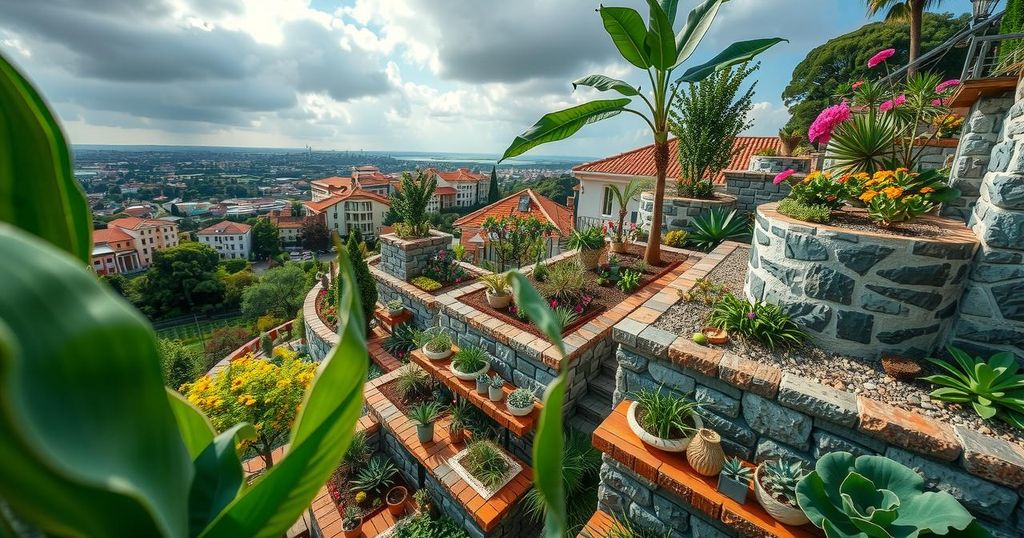Terrace Gardens: A Key Strategy for Climate Resilience in Indian Cities

India is facing a climate crisis, with extreme weather leading to loss of lives and agricultural damage. In response, urban areas are exploring terrace and balcony gardens as effective green solutions. These gardens not only cool urban temperatures but also enhance food security, promote biodiversity, and improve quality of life. Supportive policies are needed to encourage their widespread adoption as a response to climate challenges.
The urgent climate crisis in India is characterized by extreme weather events resulting in thousands of fatalities and widespread agricultural destruction. Urban populations, particularly vulnerable communities, face heightened risks from increasing temperatures and inadequate infrastructure. To combat this challenge, there is a growing emphasis on the implementation of green solutions, namely terrace and balcony gardens. These initiatives have proven effective globally, as they help regulate urban temperatures, enhance air quality, and promote biodiversity.
Terrace and balcony gardens provide substantial benefits in mitigating the impact of heat waves, as they can decrease surrounding temperatures through shading and evapotranspiration. Research indicates that green roofs can lower surface temperatures by as much as 20°C compared to traditional structures, thus reducing energy consumption and greenhouse gas emissions. Moreover, such gardens enable residents to grow fresh produce, contributing to food security and fostering a connection to nature that enhances mental well-being.
Aside from cooling benefits, these green spaces offer insulation during colder seasons, effectively reducing heating requirements. By acting as windbreaks and stabilizing indoor climates, terrace and balcony gardens emerge as a sustainable climate adaptation strategy for urban environments. They also foster biodiversity by creating habitats for various species, enriching urban ecosystems.
Community engagement thrives around these green initiatives, as residents can exchange gardening knowledge and materials, cultivating a sense of shared responsibility towards sustainability. To promote the wide adoption of terrace and balcony gardens, it is essential for policymakers to offer supportive measures such as incentives for green roof installations and updates to building codes.
With targeted policies and community involvement, India can transform its urban landscapes into greener, more resilient spaces. The integration of terrace and balcony gardens into urban planning represents a proactive approach to climate change, promoting a healthier environment and enhancing the resilience of cities to climate extremes.
The context for this discussion stems from a report by the Centre for Science and Environment, which highlighted the alarming frequency of extreme weather events in India during a particular year. Over 3,000 lives were lost, and significant agricultural damage occurred, indicating an urgent need for actionable solutions. Urban areas face unique challenges as temperatures soar and infrastructure buckles under pressure. Consequently, there has been a pivot towards innovative green solutions, such as terrace and balcony gardens, which present a multi-faceted approach to urban planning and climate resilience.
In conclusion, the adoption of terrace and balcony gardens in Indian urban areas presents a viable and effective strategy for combating the adverse effects of climate change. By implementing supportive policies and encouraging community engagement, cities can not only lower temperatures and enhance air quality but also foster biodiversity and improve mental health. With proper investment and infrastructure, these green spaces could significantly contribute to making Indian cities more resilient and sustainable in the face of climate challenges.
Original Source: www.downtoearth.org.in






